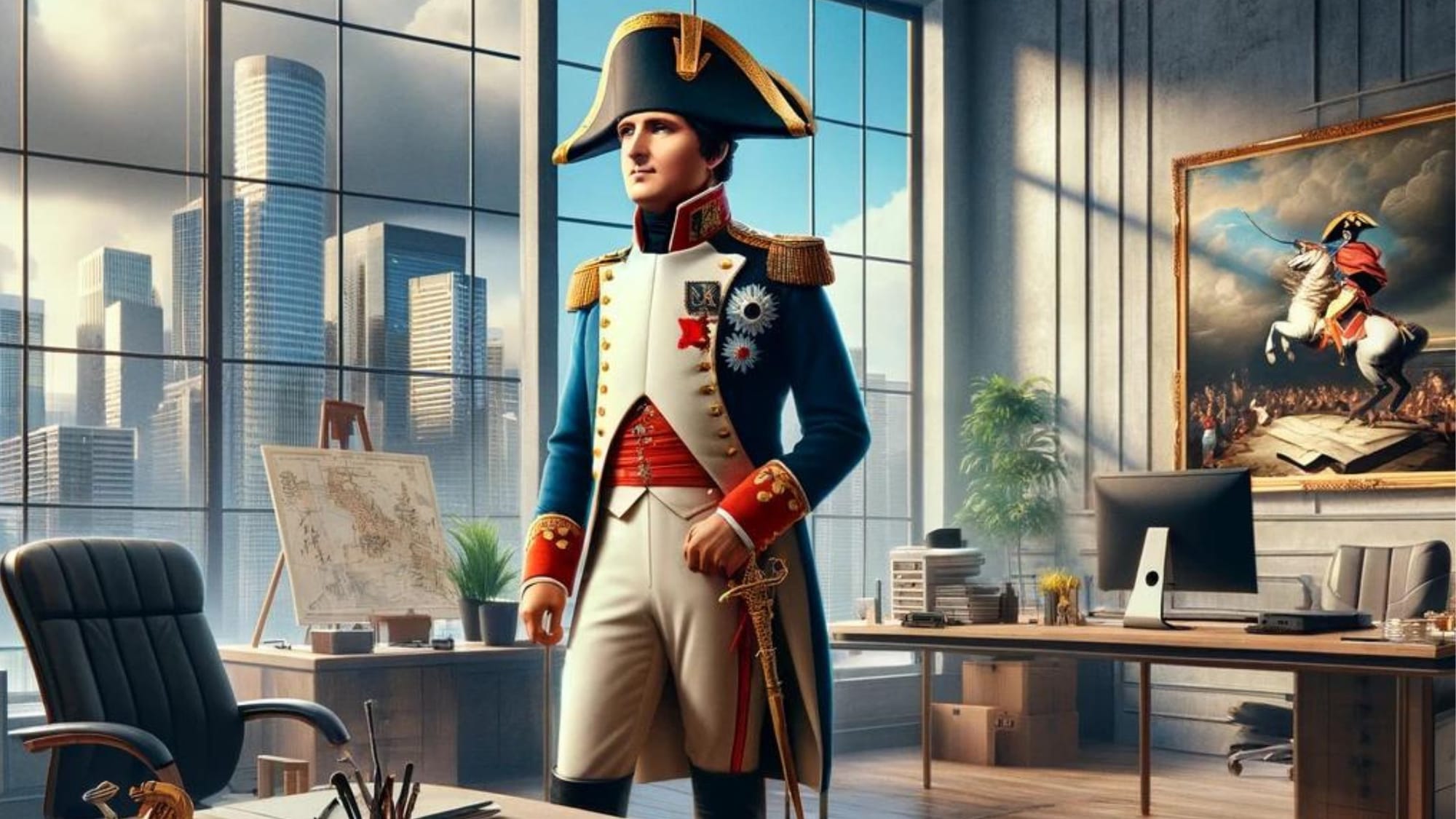Could Napoleon Bonaparte Be the Ultimate CEO? Ranking His Leadership Skills
Could Napoleon Bonaparte conquer the workplace like he did Europe? We ranked his CEO traits—communication, empathy, crisis management, and more—in a playful deep dive into history and leadership.
Napoleon Bonaparte wasn’t just about conquest—he was an icon of strategy, determination, and ambition. But what if he swapped battlefields for boardrooms? Let’s assess his potential as a modern-day CEO, ranked by key traits.
1. Napoleon’s Experience: A Proven Track Record in... World Domination (8/10)
When it comes to experience, Napoleon’s résumé is hard to beat. He ascended from a Corsican nobody to Emperor of France, orchestrated a series of jaw-dropping military victories, and left a legacy in law (hello, Napoleonic Code!).
Score: 8/10. Why not a perfect 10? Because being exiled—twice—might not scream "stability" to shareholders.
Quote: "Impossible is a word to be found only in the dictionary of fools." Well, confidence isn’t an issue, that’s for sure.
2. Communication: Clear Orders, But Where’s the Warmth? (6/10)
Napoleon was famous for barking clear, concise orders, inspiring soldiers to follow him into the depths of hell. But empathy in communication? Not so much. CEOs need to motivate, not just command. His infamous temper might make HR departments tremble.
Score: 6/10. Directness is great, but maybe dial down the ego?
3. Team Building: A Leader, Not a Team Player (5/10)
Building teams is critical for a CEO. Napoleon surrounded himself with talented marshals, but his penchant for micromanagement and mistrust made collaboration dicey. Could he foster a corporate culture, or would he burn out his top execs?
Score: 5/10. A little too "my way or the highway."
4. Company Vision: Revolutionary, But Risky (9/10)
Napoleon had big ideas—redefining Europe’s power structure, reshaping legal systems, and spreading revolutionary ideals. His vision was ambitious and groundbreaking, but like any CEO pushing innovation, he sometimes flew too close to the sun.
Score: 9/10. Visionary? Absolutely. Sustainable? Debatable.
5. Leadership Skills: Inspiring, Yet Intense (7/10)
Napoleon’s charisma was undeniable, and his troops adored him—until things went south. A great leader inspires during tough times too. That said, his ability to unify and motivate was nothing short of legendary.
Score: 7/10. Charisma? Check. Humility? Not so much.
6. Empathy Skills: All Strategy, No Heart (4/10)
Napoleon was a brilliant tactician, but empathy wasn’t exactly his forte. Modern CEOs need emotional intelligence to build trust, navigate conflicts, and connect with their team. Would Napoleon prioritize people over profits? Doubtful.
Score: 4/10. It’s lonely at the top—especially if you make it that way.
7. Crisis Management: Thrive Under Pressure (9/10)
Give credit where it’s due—Napoleon excelled in crises. Whether it was a surprise attack or a crumbling empire, he made bold, decisive moves. That’s the kind of calm-under-fire mentality any CEO could use.
Score: 9/10. He’s got nerves of steel, but overconfidence was his downfall.
8. Risk-Taking: Bold Moves or Reckless Gambles? (8/10)
Napoleon didn’t just think outside the box—he built his own. Invading Russia, though? Maybe a touch too ambitious. CEOs need risk-takers, but calculated ones. Napoleon’s gambles were brilliant... until they weren’t.
Score: 8/10. Know when to fold, buddy!
9. Trust: The Loyalty Dilemma (6/10)
Napoleon inspired loyalty among his troops and allies—until his decisions put them in impossible situations. Trust is vital in any workplace, and while he had it for a while, it often came at a steep price.
Score: 6/10. Trust is earned, not demanded.
10. Lasting Impact: Leaving a Legacy (10/10)
If we’re talking about leaving a mark, Napoleon aces this category. From military strategy to the Napoleonic Code, his influence shaped the modern world. A CEO who builds systems with lasting value? Gold star!
Score: 10/10. Love him or hate him, the man left an indelible legacy.
Overall Ranking 7.2/10
Napoleon Bonaparte would make a visionary, gutsy CEO—but he might also drive his company straight into the ground with risky decisions and a lack of empathy. Bottom line? He’s more suited for a startup than a Fortune 500.








